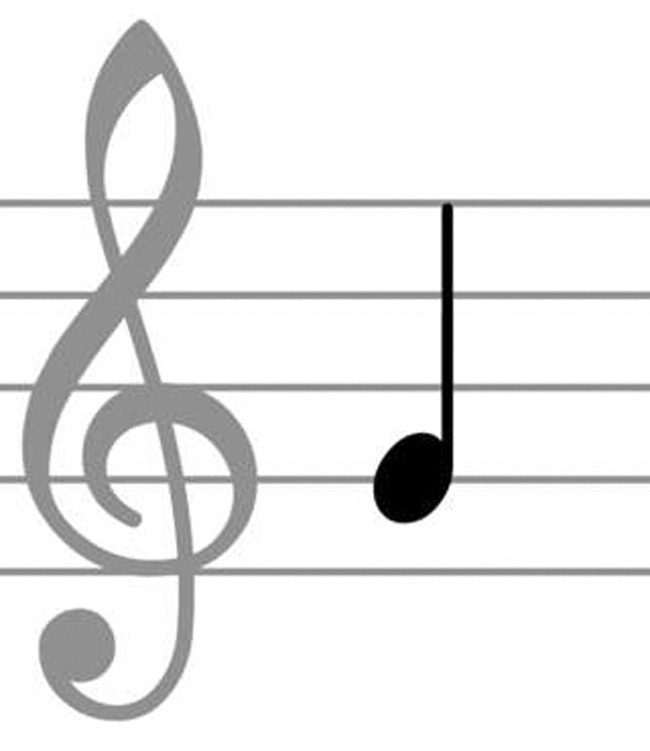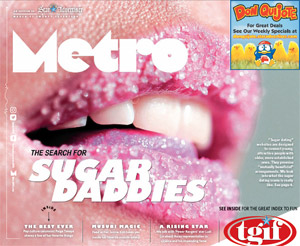Music Matters
 When I was in sixth grade, my band teacher moved me up to Senior Band. I was 11 years old in a group of frighteningly older, much more developed eighth-graders, hiding on the side of the room behind the huge copper kettle drums. The only reason I was there was because I was the only student who knew what to do with those things, but to me, sitting there trying to be invisible as they all barreled into class laughing and teasing each other was the scariest thing I’d had to endure in my young life.
When I was in sixth grade, my band teacher moved me up to Senior Band. I was 11 years old in a group of frighteningly older, much more developed eighth-graders, hiding on the side of the room behind the huge copper kettle drums. The only reason I was there was because I was the only student who knew what to do with those things, but to me, sitting there trying to be invisible as they all barreled into class laughing and teasing each other was the scariest thing I’d had to endure in my young life.
There were four boys who also played percussion in the back, and I studied them as the teacher led them through the first song to be practiced that day. He had everything we were going to play written on the board — the two songs I had parts for being the last. It was easy to sit low and hide behind the drums, even though some of the kids noticed and kept stealing glances at me. I was beyond scared. I zoned out as best as I could, studying the sheet music and tapping the heads of the timpani with my fingers and adjusting the pedals to make sure they were tuned. Sometimes the pedal can slip, making the drum fall out of key, but I was definitely checking it much more than I needed to.
All of a sudden, the room went quiet. I looked up, and everyone was looking at me. Dammit, I thought, they could hear me tapping the drum heads. But it was much worse.
“Christa, can you please go over to the bass drum?” my teacher asked me.
I could feel my face get hot as I got up and weaved my way over to the back of the room. The tall eighth-grader was still holding the mallet, so I looked back over at my teacher. Are you sure?
“Joe, give her the mallet,” he said.
The kid’s face was red, too. “We are starting from measure 36,” the teacher said and raised his hands to get the band ready. I studied the half-size sheet music that’s the typical size for marches and followed along with the band. It was a bright and peppy march song.
We didn’t even get to the end before the other drummers behind me started laughing; the rest of the band joined in as we finished, and even my teacher was smiling. I was so confused.
“See, Joe? That’s how you play it.” he said, as the entire room roared with laughter.
I guess he had been having trouble with some of the rhythms. The teacher had the new girl from sixth grade — of all people — show him how to play it. It was a cute trick to win me some credibility with the students, but one that put me in the doghouse with that boy for the rest of the year.
I don’t know what I would have done with my life if it wasn’t for those youth music programs. They really shaped who I am today. This instance and many others taught me confidence and discipline, and there is nothing like being in the back of a full orchestra playing timpani. Learning to read music is extremely difficult — and it’s why many children decide to leave music programs.
There are some great apps today that I wish I had when I was growing up. These apps definitely cost less than a tutor, and they are conducive to capturing kids’ attention where they spend it most: on the computer.
Notes for Little Composers is designed to strengthen both music reading ability and speed. Of all the music learning applications, it is the most cost-effective for building a solid foundation — and having even a slight advantage in class can be monumental for kids.
@SUPERCW
Christa Wittmier is “SUPERCW” on all social media. Find her on Snapchat, Soundcloud, Twitter, Vine and Instagram. By night, she is known as DJ SuperCW. By day, she is known as senior marketing director for Young’s Market Company of Hawaii. Her nightlife blog SuperCity runs every Wednesday on HonoluluPulse.com.


